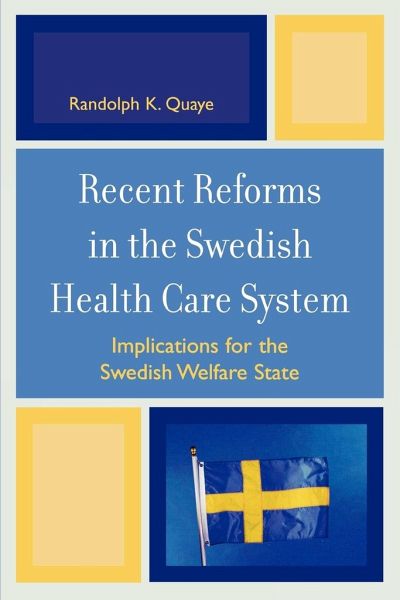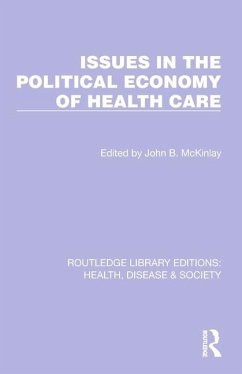
Recent Reforms in the Swedish Health Care System
Implications for the Swedish Welfare State
Versandkostenfrei!
Versandfertig in 1-2 Wochen
47,99 €
inkl. MwSt.

PAYBACK Punkte
24 °P sammeln!
Good health and equal access to health and medical care are the fundamental aspects of the Swedish welfare state. In recent years, however, economic incentives have become more and more important in health care, even in welfare states such as Sweden. In a decade and a half, Sweden has experimented with different health care modalities. As far as we know, relatively little research has been done to assess how these financial incentives, over time, have affected Sweden and the views of physicians. This work analyzes the implications of these reforms on the future structure of the well-envied hea...
Good health and equal access to health and medical care are the fundamental aspects of the Swedish welfare state. In recent years, however, economic incentives have become more and more important in health care, even in welfare states such as Sweden. In a decade and a half, Sweden has experimented with different health care modalities. As far as we know, relatively little research has been done to assess how these financial incentives, over time, have affected Sweden and the views of physicians. This work analyzes the implications of these reforms on the future structure of the well-envied health care of the Swedes.














